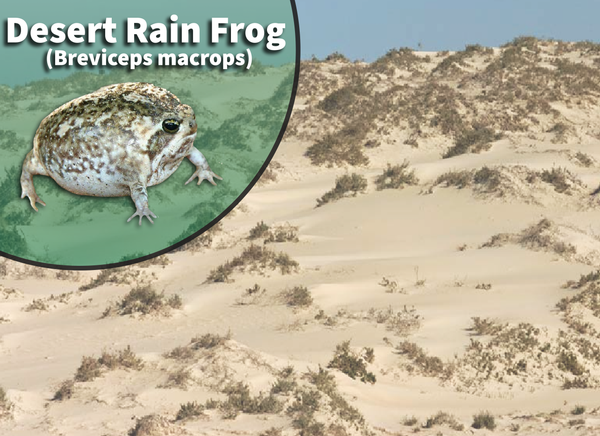Common Health Issues in Reptiles: Symptoms and Solutions
In the intricate globe of reptile treatment, comprehending the usual health issues that may impact these special creatures is vital in ensuring their wellness. From respiratory infections that can silently hold to metabolic bone illness that can disable, reptiles are prone to a variety of conditions that call for eager monitoring and prompt intervention. Whether it's grappling with parasitical infestations, browsing dehydration worries, or resolving skin disorders that materialize in subtle ways, being in harmony with the signs and geared up with the knowledge of efficient services is important for any reptile owner. By diving additionally into the subtleties of these wellness problems and exploring the practical solutions readily available, one can secure the wellness and vitality of these remarkable animals.
Breathing Infections
Respiratory infections in reptiles can considerably influence their overall health and need punctual focus from seasoned veterinarians. These infections are typically triggered by fungis, bacteria, or viruses and can manifest through symptoms such as hissing, nasal discharge, open-mouth breathing, and lethargy. In reptiles, respiratory system infections can be specifically testing to detect and deal with as a result of their one-of-a-kind makeup and physiology. Vets often count on a mix of physical examinations, analysis imaging, and research laboratory examinations to precisely determine the underlying cause of the infection.
Therapy for respiratory system infections in reptiles generally involves a mix of helpful care, such as keeping appropriate humidity degrees and temperature level gradients in the enclosure, as well as targeted medication to deal with the specific virus accountable for the infection. It is important for reptile owners to check their pets closely for any type of signs of breathing distress and look for veterinary treatment at the earliest sign of a concern. With timely treatment and suitable therapy, numerous reptiles can recoup completely from respiratory system infections and resume normal activities.

Metabolic Bone Condition
What aspects contribute to the growth of Metabolic Bone Illness in reptiles?
Metabolic Bone Illness (MBD) in reptiles is largely caused by a lack of correct calcium, phosphorus, and vitamin D3 levels in their diet. Furthermore, insufficient direct exposure to UVB light protects against reptiles from manufacturing vitamin D3, which is crucial for calcium absorption and bone wellness.
Other contributing variables to MBD include inappropriate temperature level slopes within the reptile's environment, leading to decreased metabolic process and impaired calcium absorption. Not enough moisture degrees can likewise affect a reptile's ability to metabolize calcium efficiently. Moreover, specific reptile varieties have details nutritional demands that, if not satisfied, can enhance the likelihood of creating MBD. Regular vet examinations, proper husbandry techniques, and a well balanced diet plan are necessary to prevent Metabolic Bone Disease in reptiles.
Parasitic Problems
Parasitic problems pose a considerable health threat to reptiles, impacting their general well-being and needing timely veterinary interest. Reptiles can be affected by different bloodsuckers, including termites, ticks, internal worms, and protozoa. These parasites can cause a series of symptoms, such as fat burning, sleepiness, skin inflammation, diarrhea, and also fatality if left untreated.
One usual parasite discovered in reptiles is the mite, which can create Recommended Reading skin inflammation, anxiety, and anemia. Ticks are an additional external parasite that can trigger and send conditions discomfort to the reptile. Internal bloodsuckers like worms and protozoa can bring about digestive issues, malnutrition, and damage the reptile's immune system.
To detect a parasitical problem, a vet may perform fecal tests, skin scrapings, or blood tests. Treatment often involves deworming medicines, antiparasitic baths, or in serious situations, a hospital stay. Preventative procedures such as routine vet examinations, appropriate health, and quarantine procedures for new reptiles can help reduce the risk of parasitic invasions and guarantee the wellness of reptile animals.
Dehydration and Hydration Issues
Dehydration in reptiles can substantially affect their health and health, requiring prompt intervention and suitable hydration management. If left neglected, dehydration can lead to major wellness problems and also be deadly to the reptile.
To avoid dehydration, reptile proprietors must make sure that their family pets have access to tidy water at all times. The water meal ought to be huge enough for the reptile to take in if required, especially for types that absorb water via their skin. Furthermore, maintaining appropriate humidity degrees in the reptile's enclosure and giving regular bathrooms can help stop dehydration.
In cases of dehydration, it is crucial to look for veterinary treatment immediately. A vet may carry out fluids either orally or via injections to rehydrate the reptile. It is necessary to attend to the underlying source of dehydration to stop recurrence and make certain the reptile's total wellness.
Skin Disorders

Final Thought

Respiratory system infections in reptiles can dramatically affect their overall health and wellness and call for timely attention from seasoned vets (rain frog for sale). Preventative steps such as regular vet examinations, correct health, and quarantine procedures for brand-new reptiles can help minimize the threat of parasitic problems and make sure the wellness of reptile pet dogs
If left without treatment, dehydration can lead to major wellness problems and even be deadly to the reptile.
Frequently inspecting your reptile for any type of adjustments in skin appearance, appearance, or color can help in very early discovery and treatment of skin conditions, advertising the total wellness and wellness of your flaky companion. - rain frog for sale
In conclusion, reptiles are vulnerable to various health and wellness concerns such as respiratory infections, metabolic bone condition, parasitical infestations, dehydration, and skin conditions.